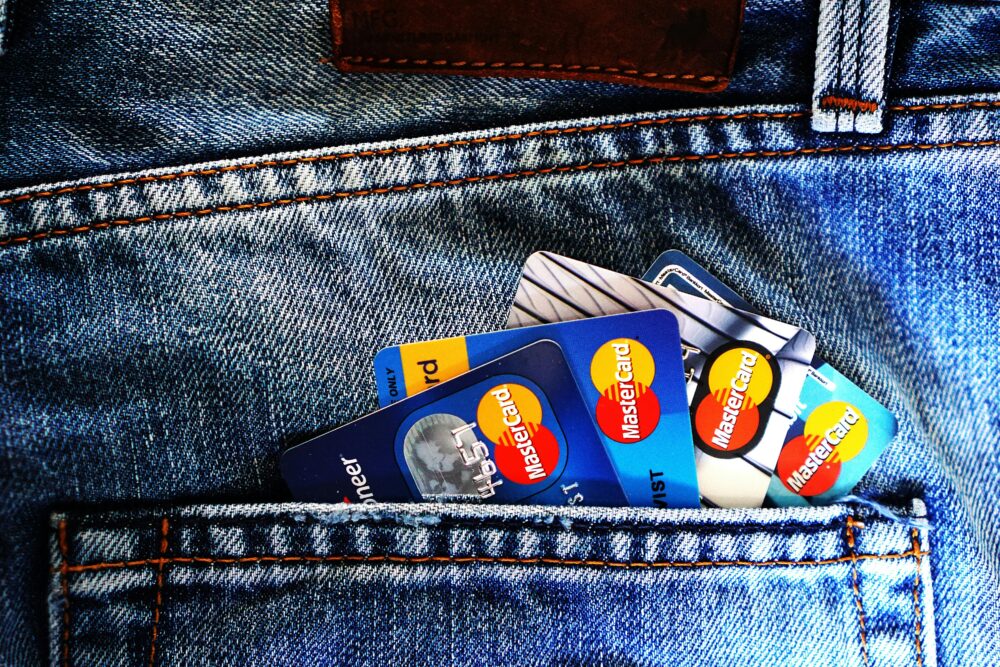Imagining a world before digital banking is nearly impossible, given the leaps technology has made over the past two decades.
Digital wallets offer efficiency, convenience, and 24/7 accessibility. While generally slower, traditional banking rivals digital wallets through its physical and dependable presence.
Deciding between traditional banking and digital wallets can be a bit of a pickle without the facts. As you continue to explore your options, we offer a comprehensive view of the benefits and drawbacks of each payment method to help you choose.
Digital Wallets
A digital wallet or e-wallet is an application that helps people store funds, transact online, and access payment information and transaction history on a desktop or smartphone. Digital wallets usually function like credit or debit cards. Instead of swiping physical cards, users connect the digital wallet to an existing bank account or store funds on the wallet to transact online.
Consumers can also register subscriptions, save information such as tickets and coupons, and store cards on these wallets to make payment easier.
Popular digital wallets include PayPal, Google Wallet, and Apple Pay. Since digital wallets are applications, their availability also depends on the operating system they are on. For example, Apple Pay is available on iOS devices, while Android devices use Google Pay.
Other third-party apps like PayPal have versions for both major technology ecosystems. Banks and major retailers also have closed digital wallets in their applications for their customers. For example, Amazon Pay allows users to store and transact funds strictly on Amazon.
Advantages
- Convenience: Digital wallets are an excellent replacement for physical cards and wallets. Customers can easily access wallets through computers and mobile smart devices.
- Security: Digital wallets have several security layers. The first layer starts with the device security, since a user has to be logged in to access the app. E-wallets also prompt a login with a password or biometric authentication. For transactions, digital wallets sometimes offer a random code instead of the fixed numbers on physical cards. And as a cherry on top, card and transaction details are secured through tokenization to prevent identity theft and data breaches.
- Speed: Digital payments are faster than bank wires. Unlike traditional banking, which requires one-on-one service, they’re essentially instant and occur simultaneously.
- Compatibility: Digital wallets are ubiquitous and widely accepted across platforms, including gaming sites like Slots Capital. To remain competitive, businesses have integrated their platforms with popular digital wallets.
- Transaction history: Digital wallets provide excellent transaction history for those tired of keeping up with worn-out or lost receipts. Users can access their archives and track their payments and transaction fees with the simple tap of a button.
Drawbacks
Fees: While digital wallets offer competitive and affordable transfer fees, costs can easily rack up. Users should weigh the cost of multiple transfers over a day versus making one bulk payment.
Limited acceptance: Not all platforms accept all digital wallets. As such, customers have to register for multiple digital wallets to accommodate different sites. Some merchants do not accept any digital wallets, forcing customers to pay cash or use swipe physical cards.
Fraud: Identity theft and fraudulent transactions on digital wallets are a consistent risk, especially when a data breach occurs.
Internet and Device dependent: Without a smart device or an internet connection, users cannot access digital wallets. Also, users have to be tech-savvy to access services.
Traditional banking
Traditional banking is an umbrella term for banking services outside the online realm. Customers use credit cards, debit cards, and bank transfers to transact. Banks usually have a physical presence, regional headquarters, branded ATMs at their branches, and face-to-face customer services.
Most traditional banks now have an online presence through branded digital wallets but maintain a physical presence.
Widespread acceptance: Traditional banking has existed longer than digital wallets, and is therefore more widespread and acceptable globally.
Security: Traditional banks are usually regulated, making it easier to report disputes to a regulating body. Banks are also insured to compensate customers, even in cases where banks collapse.
Reliability: Traditional banks have better networks and ATMs. Customers can also deposit and withdraw cash, which is a lifeline for many consumers.
Face-to-face support: The ability to walk into a banking hall and speak to a real person often surpasses online and automated customer support.
Trustworthiness: Traditional banks have established goodwill and positively impact people’s perception of you and your business, especially when transacting locally.
Personalized service: Customers can access personalized services such as account managers, cash deposit boxes, and checking accounts.
Drawbacks
Processing time: Bank transfers take time, sometimes up to three business days, which is a huge inconvenience for instant requirements, such as placing a bet.
Fees: Banks charge fees for wire transfers and card use. The costs can be hefty and quickly rack up when making multiple transfers.
Overdraft risks: It’s possible to overdraw on a bank account unintentionally, making it easy to pile up debt.
Theft: Physical cash and cards can be easily lost due to theft and mistakes. Exposure of cards requires direct bank contact to prevent potential fraud.
Comparison and Recommendations
Ultimately, both digital wallets and traditional banks have advantages and drawbacks. Digital banks are great for those who value convenience and speed, especially when making frequent transactions online. Traditional banks are excellent for moments when reliability takes precedence.
For instance, if you make multiple bets on Slots Capital, waiting for a three-day process to deposit funds in your account is frustrating. However, a traditional bank wire may be better suited for lump-sum payments to fund your activities. Fortunately, platforms like Slots Capital accept digital wallets and traditional banking, making it easier to fund your account.
Conclusion
Whether you are a fan of digital wallets or traditional banking, your choice may depend on more factors beyond your preference. It’s crucial to consider safety and acceptance by merchants. In a digital age, where information is readily available to the wrong people, securing your funds naturally takes precedence.
